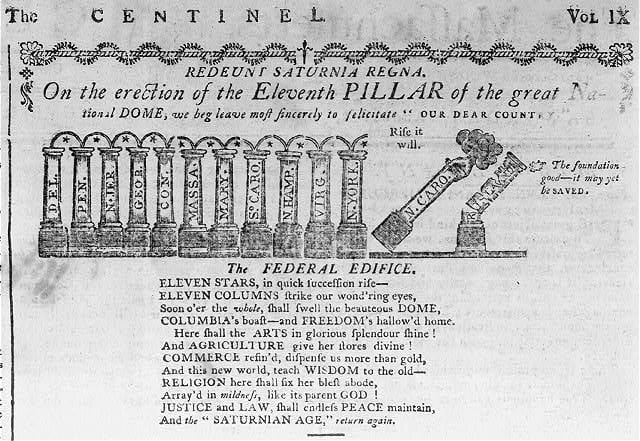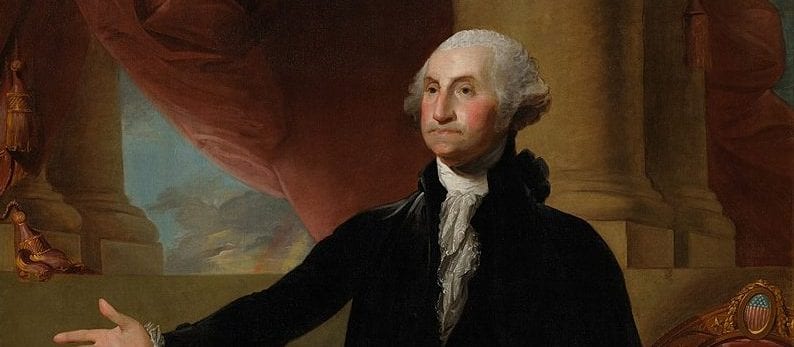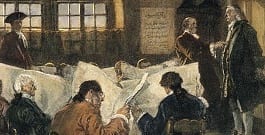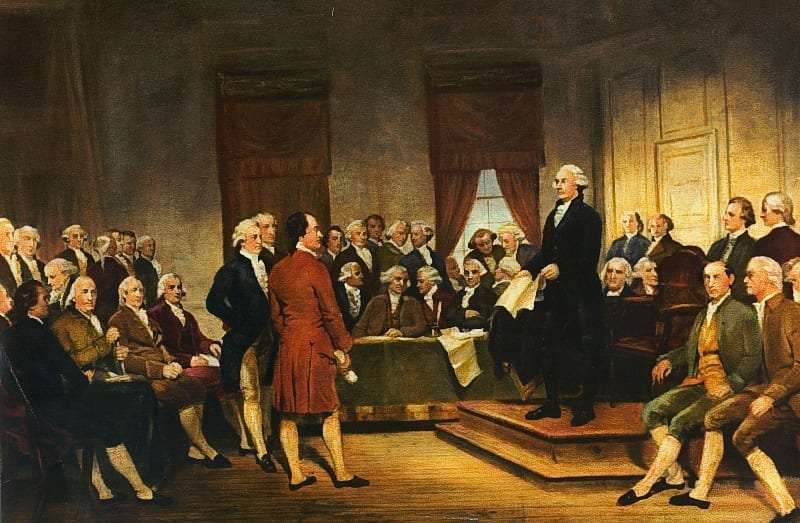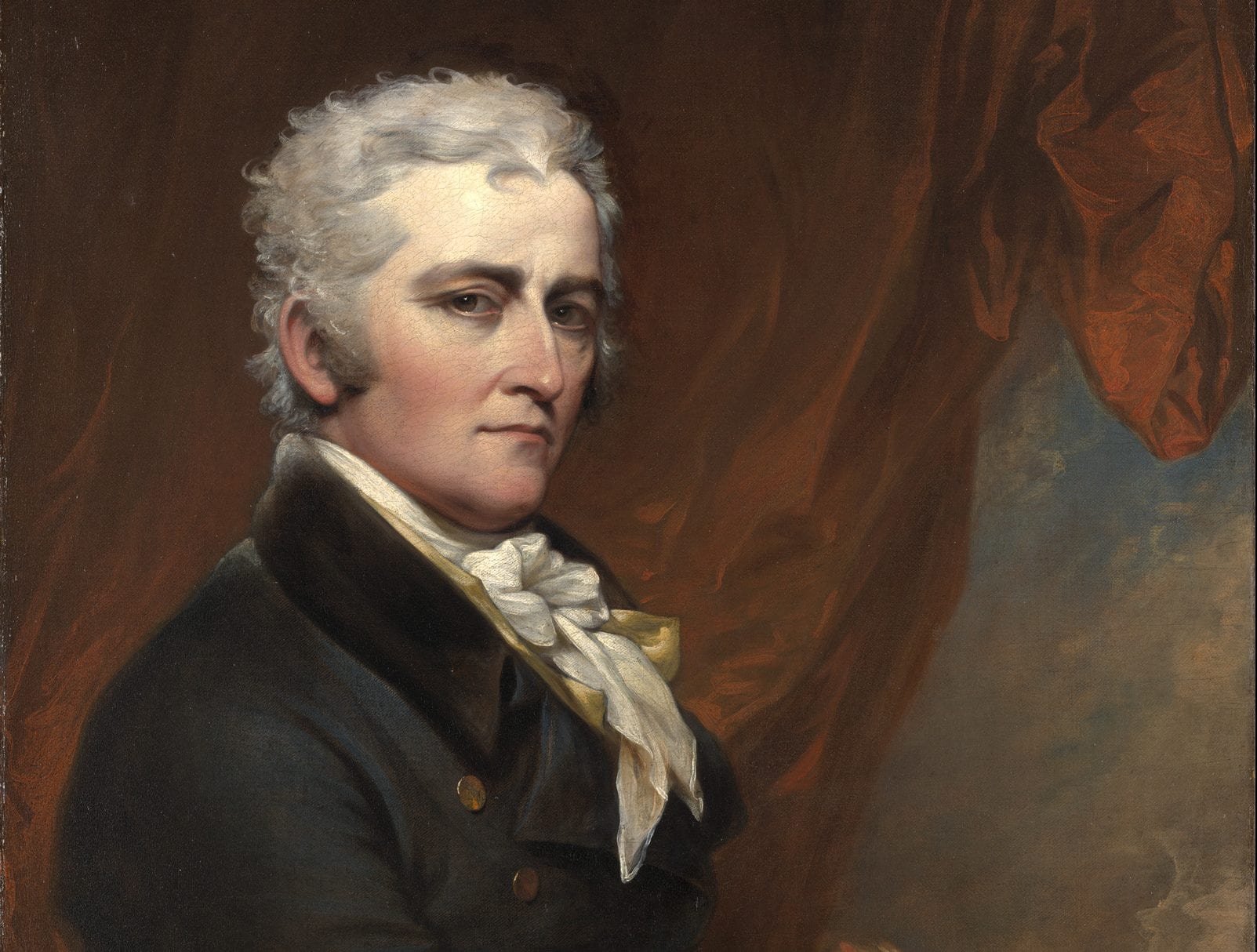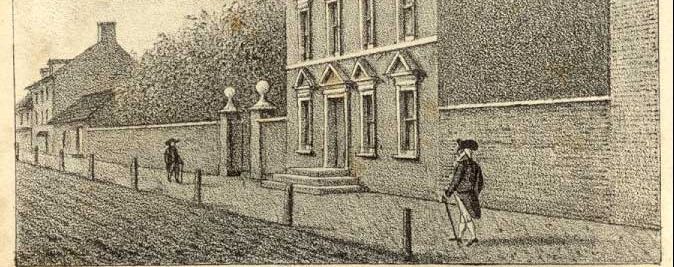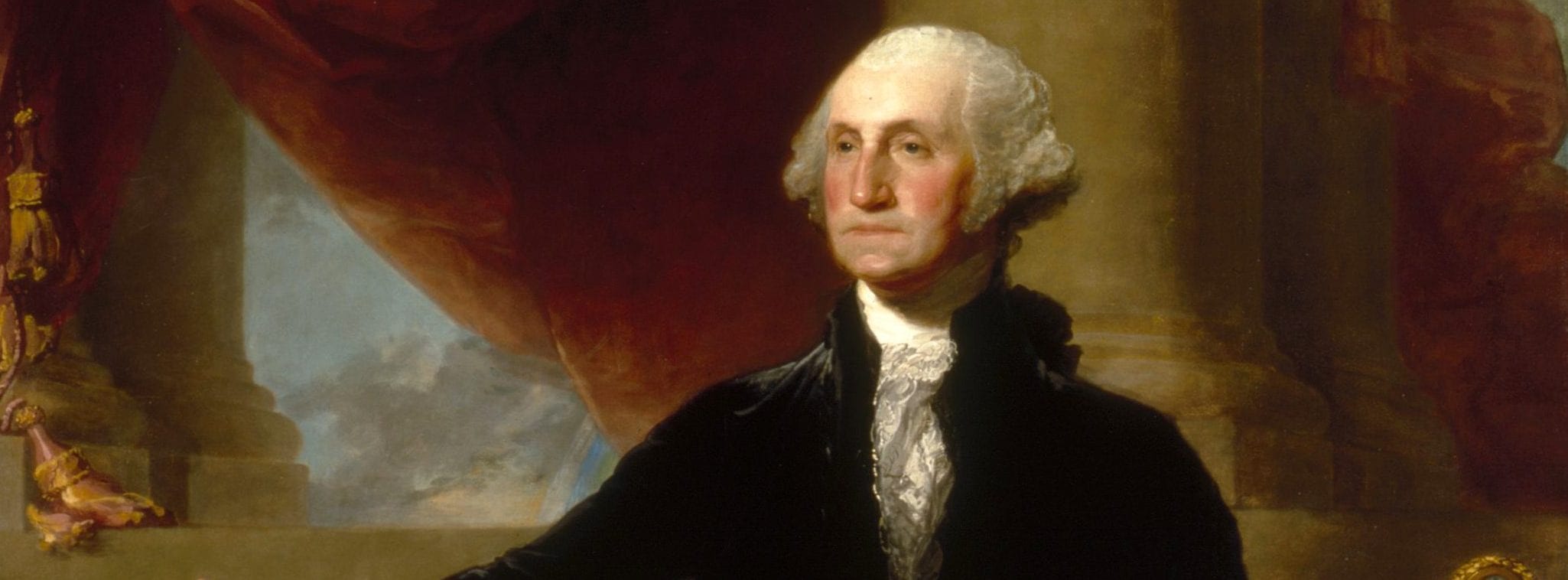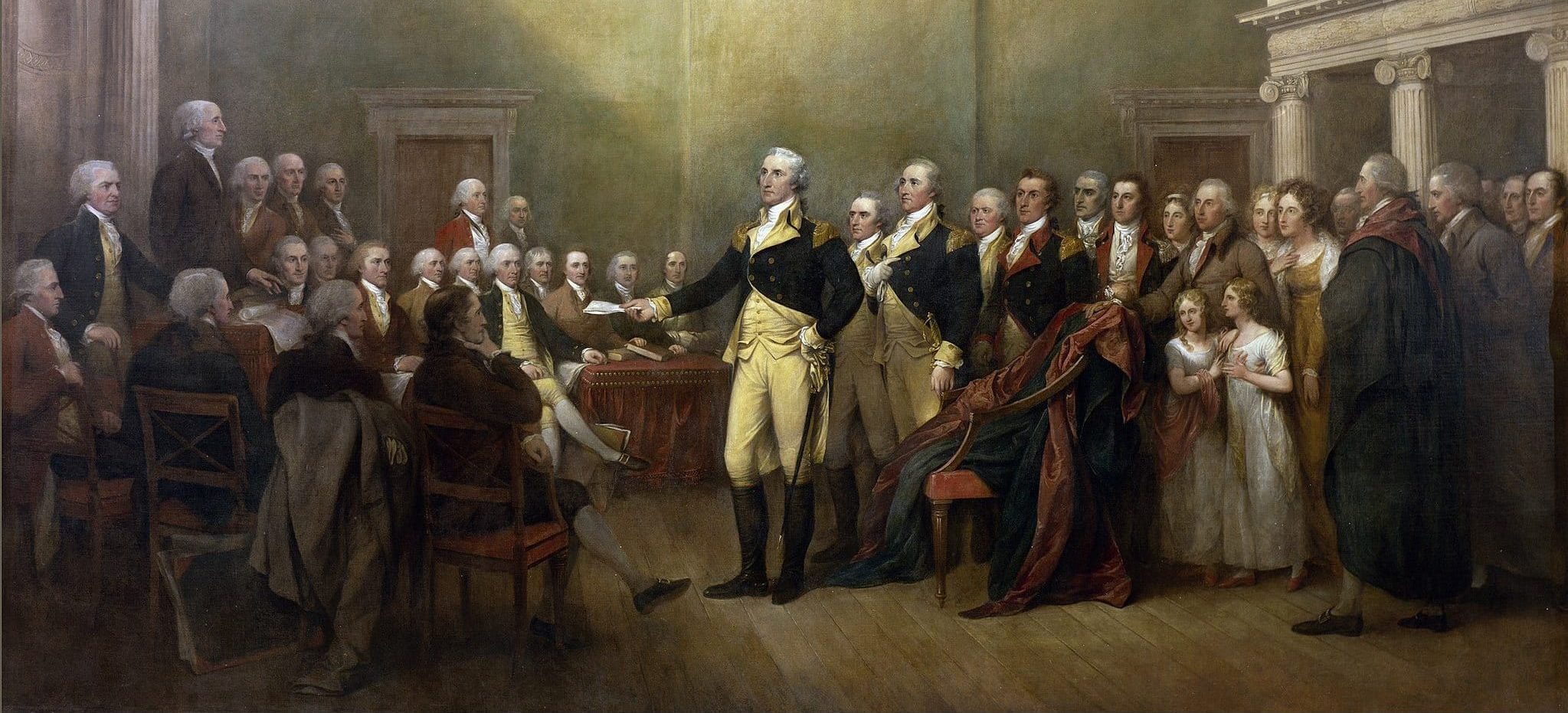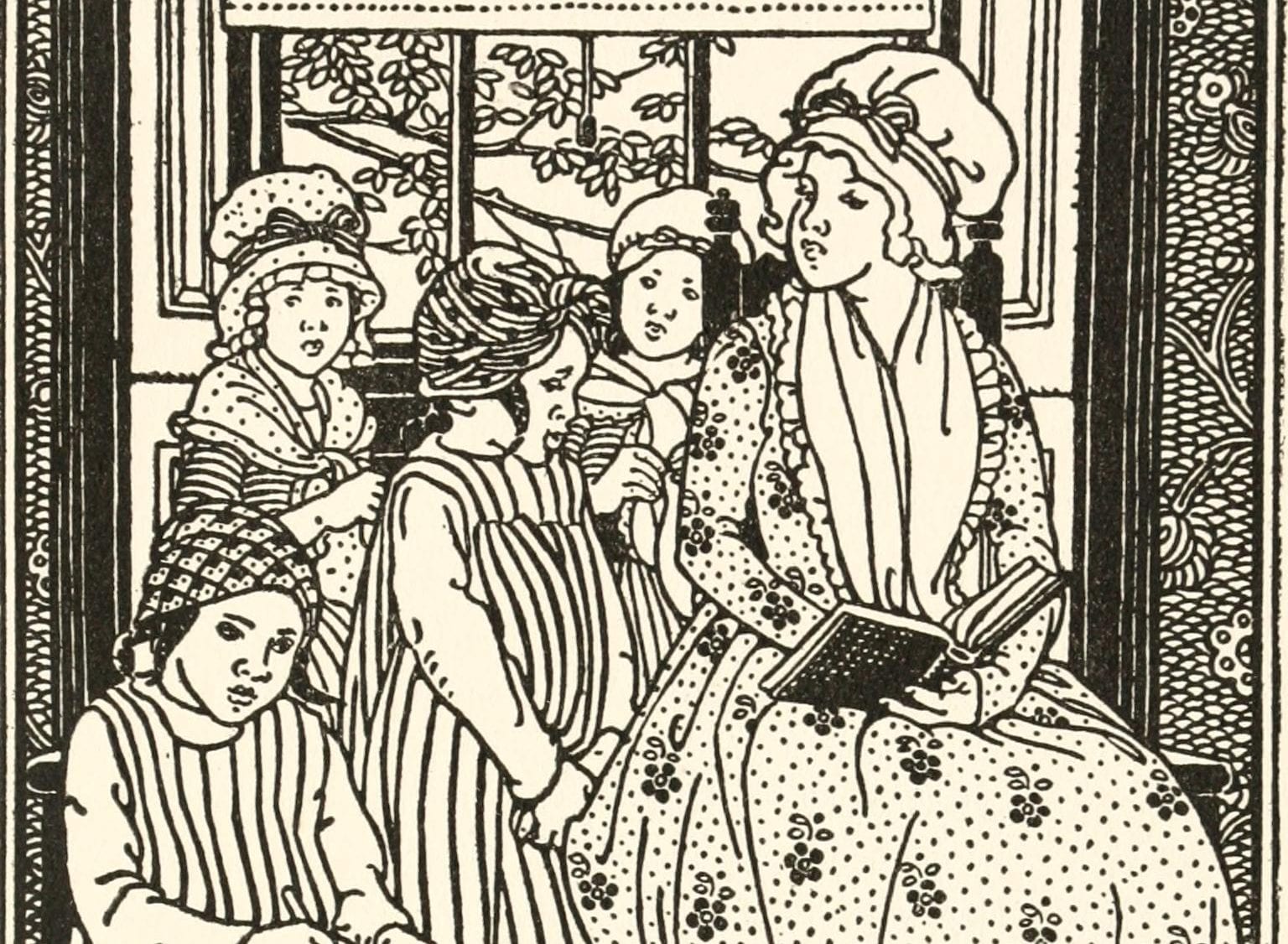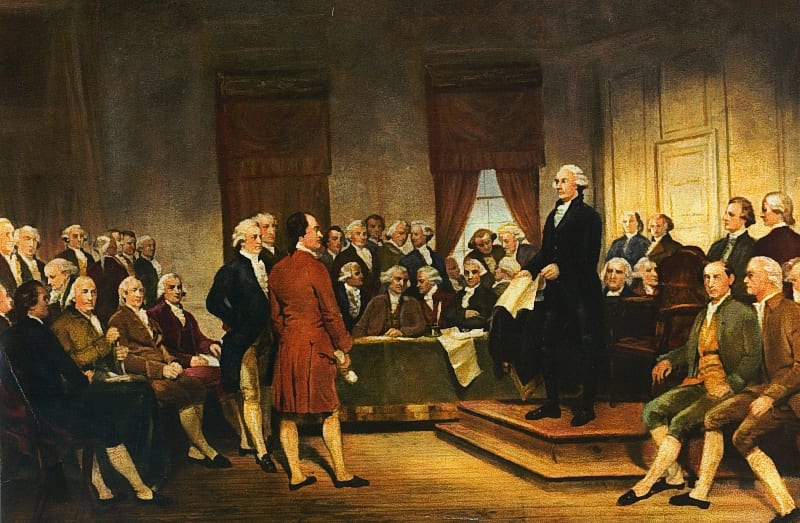
The FALLACIES of the FREEMAN detected by a FARMER.
Some weeks since there was published in the Carlisle Gazette an Address to the Minority of the late Convention of this State, under the signature of a Freeman, which I then supposed had been written by some well-meaning person of that place,2 who had not yet entered the porch of political knowledge, who was unacquainted with the nature of sovereignty, and incapable of distinguishing ministerial agency from the exercise of sovereignty; I therefore took no especial notice of it, until happening to see a Philadelphia Newspaper, I found the Address had originated there, and was ascribed to a gentleman who is far from being ignorant, as I had candidly supposed the author to be, but who hath habituated himself to presume much upon the sup-posed ignorance of the people, and whose expectations of future sup-port and grandeur hath probably been very influential in framing and promoting the proposed system of government:-Upon this discovery, I read the Address again with more attention, and resolved to com-municate, thro’ your useful paper, the result of my observations thereon. I do not, however, design to answer the Address in detail, but to establish and explain such general principles as may assist people in judging for themselves, and have a tendency to detect the sophistry which characterises the performance. In order to do this, I shall ex-plain,
First, The NATURE of SOVEREIGNTY.
Second, Of a FEDERAL REPUBLIC.
Third, Of a CONSOLIDATED GOVERNMENT.
Fourth, The NATURE of MINISTERIAL AGENCY.
Fifth, Examine the ADDRESS to the MINORITY (the occasion of these Enquiries.)
Sixth, Conclude with some GENERAL OBSERVATIONS On the TIMES.
I return to the first then: From the very design that induces men to form a society that has its common interests and to promote and secure which it ought to act in concert, it is necessary that there should be established a public authority, to order and direct what ought to be done by each individual as he stands in relation to the society itself, or to the individual members thereof; and this public authority consisting of that portion of natural liberty which each member surrenders to the society to be exercised for the common advantage, is the sovereignty which is often called political authority. If this sovereignty or political authority be vested in and exercised by the whole people, as in some of the ancient republics, or if it be delegated to representatives chosen by the people from among themselves, as in modern times, the government is called a democracy. If on the contrary the sovereignty be in a particular class of citizens who have not a common interest with the people at large, or body of the nation, it is called an aristocracy; and if in a single person, a monarchy or despotism; and these three kinds may be variously combined and modified as in the British government and others, but every nation that governs itself by its own laws let the form of government be what it may, is a sovereign state.
Sovereignty therefore consists in the understanding and will of the political society, and this understanding and will is originally and inherently in the people; the society having rested3 it where and in what manner it pleases, he or they to whom it is delegated is the sovereign and is thus vested with the political understanding and will of the people for their good and advantage solely.
The power of making rules or laws to govern or protect the society is the essence of sovereignty, for by this the executive and judicial powers are directed and controuled, to this every ministerial agent is subservient, and to this all corporate or privileged bodies are subordinate: this power not only regulates the conduct, but disposes of the wealth and commands the force of the nation. To keep this sovereign
power therefore in due bounds hath fundamental laws, which we call constitutions and bills of rights, been made and declared. Scarcely hath the wisdom of man, matured by the experience of ages, been able with all the checks, negatives and balances either of ancient or modern invention to prevent abuses of this high sovereign authority.
Here I may possibly be misunderstood; it may perhaps be objected, that in Great Britain the King is called the Sovereign, and that he is an executive and not legislative officer. True, the King of Great Britain is the Supreme Executive of the nation, but it is not this alone that constitutes him a Sovereign; he hath a negative over the Legislative, the laws are made by and with his consent, and are called the King’s Laws; he calls, prorogues and dissolves his Parliament when he pleases; the Parliament indeed so manage, that the necessity of the case obliges him to convene them frequently, but he is not obliged to do it by the Constitution; so that, properly speaking, it is the King and Parliament of Great Britain which is sovereign.-However, if the Legislative authority were to be distributed in various portions, that man, or body of men, who should be vested with the sole and uncontrouled power of taxation, would eventually become the sovereign, for whoever can command our whole property has the means in his power of ruling us as he pleases, because (as Montesquieu says) “sovereignty necessarily follows the power of taxation.[“]
[23 April] Secondly. I shall proceed to define a FEDERAL REPUBLIC:-A Federal Republic is formed by two or more single or consolidated republics, uniting together by a perpetual confederacy, and without ceasing to be distinct states or sovereignties; they form together a federal republic or an empire of states. As individuals in a state of nature surrender a portion of their natural liberty to the society of which they become members, in order to receive in lieu thereof protection and conveniency; so in forming a federal republic the individual states surrender a part of their separate sovereignty to the general government or federal head, in order that, whilst they respectively enjoy internally the freedom and happiness peculiar to free republics, they may possess all that external protection, security, and weight by their confederated resources, that can possibly be obtained in the most extended, absolute monarchies.
The peculiar advantages and distinctive properties of a federal re-public are, that each state or member of the confederation may be fully adequate for every local purpose, that it may subsist in a small territory, that the people may have a common interest, possess a competent knowledge of the resources and expenditures of their own particular government, that their immediate representatives in the state governments will know and be known by the citizens, will have a common interest with them, and must bear a part of all the burdens which they may lay upon the people, that they will be responsible to the people, and may be dismissed by them at pleasure; that therefore the government would be a government of confidence and possess sufficient energy without the aid of standing armies, that the collectors of the revenue would at least have the bowels of citizens, and not be the offscourings of Europe, or other states who have no interest in, or attachment to the people; that if one or more of the states should become the prey of internal despotism, or foreign foes, the other states may remain secure under the protection of their own state government; that if some popular and wealthy citizen should have influence enough to attempt the liberties of one state, he might be stopped in his career by the interposition of the others, for his influence could not be equally great in all the states; that if the general government should fail, or be revised or changed, yet the several state governments may remain entire to secure the happiness of the citizens; and that the members of a confederated republic may be encreased to any amount, and consequently its external strength without altering the nature of the government, or endangering the liberty of the citizens.
The perfection of a federal republic consists in drawing the proper line between those objects of sovereignty which are of a general nature, and which ought to be vested in the federal government, and those which are of a more local nature and ought to remain with the particular governments; any rule that can be laid down for this must vary according to the situation and circumstances of the confederating states; yet still this general rule will hold good, viz. that all that portion of sovereignty which involve the common interest of all the confederating states, and which cannot be exercised by the states in their individual capacity without endangering the liberty and welfare of the whole, ought to be vested in the general government, reserving such a proportion of sovereignty in the state governments as would enable them to exist alone, if the general government should fail either by violence or with the common consent of the confederates; the states should respectively have laws, courts, force, and revenues of their own sufficient for their own security; they ought to be fit to keep house alone if necessary; if this be not the case, or so far as it ceases to be so, it is a departure from a federal to a consolidated government; and this brings me to the next particular, which is to shew what is meant by a consolidated government.
Thirdly. The idea of a CONSOLIDATED GOVERNMENT 1S easily under-stood, where a single society or nation forms one entire separate government, and possess the whole sovereign power; this is a consolidated or national government. Whether a government be of a monarchical, aristocratical or democratical nature, it doth not alter the case, it is either a federal or a consolidated government, there being no medium as to kind.-The absoluteness of a despotic sovereignty is often restricted by corporate bodies, who are vested with peculiar privileges and franchises-and by a just distribution of the executive and ministerial powers; but although these may contribute to the happiness of the people, yet they do not change the nature of the government. Indeed, monarchies can never form a federal government; they may enter into alliances with each other; for monarchy cannot be divested of a competent proportion of sovereignty to form a general government without changing its nature. It is only free republics that can completely and safely form a federal republic; I say free republics, for there are republics who are not free, such as Venice, where a citizen carrying arms is punished with instant death, and where even the nobles dare not converse with strangers, and scarcely with their friends, and are liable by law to be put to death secretly without trial-or Poland which, in much the same words that are expressed in the new system, is by a league with the neighbouring powers guaranteed to be forever independent and of a republican form; yet a writer of their own says, that the body of the people are scarcely to be distinguished from brutes; and again he says, we have reduced the people of our kingdom by misery to a state of brutes; they drag out their days in stupidity, &c. Free republics are congenial to a federal republic. In order that a republic may preserve its liberty, it must not only have a good form of government, but it must be of small extent; for if it possess extensive territory, it would be ruined by internal imperfection. The authority of government in a large republic does not equally pervade all the parts; nor are the political advantages equally enjoyed by the citizens remote from the capital as by those in the vicinity; combinations consequently prevail among the members of the legislature, and this introduces corruption and is destructive of that confidence in government, without which a free republic cannot be supported; besides, the high influential trusts which must be vested in the great officers of state, would at particular times endanger the government, and are necessarily destructive of that equality among the citizens, which is the only permanent basis of a republic; in short, the diversity of the situation, habits, manners, and interests of the people in an extensive dominion, subjects the government to a thousand accidents, which would embarrass a republican government. The experience of nations and the nature of things, sufficiently prove, that the government of a single person, aided by armies and controuling influence, is necessary to govern a large consolidated empire.
And on the other hand, if the territory be small, the republic is liable to be destroyed by external force, therefore, reason and observation points out a confederation of republics, as the only method to preserve internal freedom, together with external strength and respectability.-Small republics forming a federal republic on these principles, may be resembled to divers small ropes plaited together to make a large and strong one, if the latter is untwisted, the small ropes are still useful as such, but if the former are untwisted, they are reduced to hemp, the original state.
To apply these principles to our present situation without respect to the proposed plan of government; in order to render the federal government adequate to the exigencies of the confederating states, it is necessary not only that the general government should be properly constructed in its forms, but that it should be vested with powers relative to all the federal objects of government, these objects are not only the powers of making peace and war, &c. but also with the power of making treaties respecting commerce, regulating and raising revenues therefrom, &c. to make requisitions of money when necessity requires it, from each of the states, and a certain well described power of compelling delinquent states to pay up their quota of such requisitions. Perhaps if each state had its own share of the domestic debt quotaed, so as they might each pay their own citizens, the general revenues would be sufficient for the other demands of the union in times of peace, if the government itself be not made too expensive by too great a number of officers being created. Congress ought, however, to have all powers which cannot be exercised by one state, without endangering the other states, such as the power of raising troops, treating with foreign nations, &c.-The power of levying imposts, will, by the particular states, be irregularly exercised, and the revenue in a great degree lost or misapplied, therefore, it ought not to be left with the states, but under proper checks, vested in the general government. All these the minority4 were amongst the foremost willing to have vested in the federal head, and more than this, had never been asked by Congress, nor proposed by the greatest advocates for congressional power, nor is more than this consistent with the nature of a federal republic. When the existing confederation was adopted, powers were given with a sparing hand, and perhaps, not improperly at that period, until experience should point out the discriminating line with sufficient experience, well knowing that it is easy for a government to obtain an encrease of power when common utility points out the propriety, but that powers once vested in a government, however dangerous they may prove, are rarely recovered without bloodshed, and even that awful method of regaining lost liberty is seldom effectual. It is now however evident that the power of regulating commerce, being of a general nature, ought to belong to the general government, and the burthen of debt incurred by the revolution hath rendered a general revenue necessary, for this purpose imposts upon articles of importation present themselves, not only as a productive source of revenue, but as a revenue for which the governments of the particular states are for well known reasons, incompetent.-The danger of en-trusting a government so far out of the people’s reach as Congress must necessarily be, strongly impressed the public mind about four or five years since, but now a conviction of the advantage and probable safety of such a measure, pervades almost every mind, and none are more willing for putting it in operation, under proper guards, than the opposers of the new system; they are also willing to admit what the majority of the states may judge proper checks in the form of the general government, as far as those checks, or the distribution of powers and responsibility of those who be vested with those powers, may be consistent with the security of the essential sovereignty of the respective states. The minority of the convention (who I really believe, in their address, express the serious sentiments of the majority of this state) opposed vesting such powers in Congress as can be most effectually exercised by the state governments in a full consistency with the general interests of the confederating states, and which, not being of a general nature, are not upon federal principles, objects of the federal government, I mean the power of capitation, or poll tax, by which the head, or in other words, the existence of every person is put in their power by the new system as a property, subject to any price or tax that may be judged proper; I do not mean to say that this implies the power of life and death, although it certainly implies the power of selling the property, or if none is to be had, of imprisoning or selling the person for a servant, who doth not chuse, or is not able to pay the poll tax; the minority also objected to vesting Congress with power to tax the property, real and personal of the citizens of the several states, to what amount, and in what manner it may please, without any check or controul upon its discretion; also to the unlimitted power over the excise; if this could extend only to spirituous liquors as is usual with us, the danger would be less, but the power of excise extends to every thing we eat, drink, or wear, and in Europe it is thus extensively put in practice. Under the term duties, every species of indirect taxes is included, but it especially means the power of levying money upon printed books, and written instruments.
The Congress, by the proposed system, have the power of borrowing money to what amount they may judge proper, consequently to mortgage all our estates, and all our sources of revenue. The exclusive power of emmitting bills of credit is also reserved to Congress. They have, moreover, the power of instituting courts of justice without tryal by jury, except in criminal cases, and under such regulations as Congress may think proper to decide, not only in such cases as arise out of all the foregoing powers, but in the other cases which are enumerated in the system.
The absolute sovereignty in all the foregoing instances, as well as several others not here enumerated, are vested in the general government, without being subject to any constitutional check or controul from the state governments.5
It remains to examine the nature of the powers which are left with the states, and on this subject it is not necessary to follow Freeman through the numerous detail of particulars with which he confuses the reader. I shall examine only a few of the more considerable. The Freeman in his 2d Number, after mentioning in a very delusory manner divers powers which remain with the states, he says we shall find many other instances under the constitution which require or imply the existence or continuance of the sovereignty and severality of the states; he as well as all the advocates of the new system, take as their strong ground the election of senators by the state legislatures, and the special representation of the states in the federal senate, to prove that internal sovereignty still remains with the states; therefore they say that the new system is so far from annihilating the state governments, that it secures them, that it cannot exist without them, that the existence of the one is essential to the existence of the other. It is true that this particular partakes strongly of that mystery which is characteristic of the system itself; but if I demonstrate that this particular, so far from implying the continuance of the state sovereignties, proves in the clearest manner the want of it, I hope the other particular powers will not be necessary to dwell upon.
The state legislatures do not chuse senators by legislative or sovereign authority, but by a power of ministerial agency as mere electors or boards of appointment; they have no power to direct the senators how or what duties they shall perform; they have neither power to censure the senators, nor to supercede them for misconduct. It is not the power of chusing to office merely that designates sovereignty, or else corporations who appoint their own officers and make their own bye-laws, or the heads of department who chuse the officers under them, such as commanders of armies, &c. may be called sovereigns, because they can name men to office whom they cannot dismiss there-from. The exercise of sovereignty does not consist in chusing masters, such as the senators would be, who, when chosen, would be beyond controul, but in the power of dismissing, impeaching, or the like, those to whom authority is delegated. The power of instructing or superceding of delegates to Congress under the existing confederation, hath never been complained of, altho’ the necessary rotation of members of Congress hath often been censured for restraining the state sovereignties too much in the objects of their choice. As well may the electors who are to vote for the president under the new constitution, be said to be vested with the sovereignty, as the state legislatures in the act of chusing senators. The senators are not even dependent on the states for their wages, but in conjunction with the federal representatives establish their own wages. The senators do not vote by states, but as individuals. The representatives also vote as individuals, rep-resenting people in a consolidated or national government; they judge upon their own elections, and, with the senate, have the power of regulating elections in time, place and manner, which is in other words to say, that they have the power of elections absolutely vested in them.
That the state governments have certain ministerial and convenient powers continued to them is not denied, and in the exercise of which they may support, but cannot controul the general government, nor protect their own citizens from the exertions of civil or military tyranny, and this ministerial power will continue with the states as long as two thirds of Congress shall think their agency necessary; but even this will be no longer than two-thirds of Congress shall think proper to propose, and use the influence of which they would be so largely possessed to remove it.
But these powers, of which the Freeman gives us such a profuse detail, and in describing which he repeats the same powers with only varying the terms, such as the powers of officering and training the militia, appointing state officers, and governing in a number of internal cases, do not any of them separately, nor all taken together, amount to independent sovereignty; they are powers of mere ministerial agency, which may, and in many nations of Europe, are or have been vested, as before observed, in heads of departments, hereditary vassals of the crown, or in corporations; but not that kind of independent sovereignty which can constitute a member of a federal republic, which can enable a state to exist within itself if the general government should cease.
I have often wondered how any writer of sense could have the confidence to avow, or could suppose the people to be ignorant enough to believe, that, when a state is deprived of the power not only of standing armies (this the members of a confederacy ought to be) but of commanding its own militia, regulating its elections, directing or superceding its representatives or paying them their wages; who is, moreover, deprived of the command of any property, I mean source of revenue or taxation, or what amounts to the same thing, who may enact laws for raising revenue, but who may have these laws rendered nugatory, and the execution thereof superceded by the laws of Congress. This is not a strained construction, but the natural operation of the powers of Congress under the new constitution; for every object of revenue, every source of taxation, is vested in the general government. Even the power of making inspection laws, which, for obvious conveniency, is left with the several states, will be unproductive of the smallest revenue to the state governments; for, if any should arise, it is to be paid over to the coffers of Congress; besides, the words “to make all laws necessary and proper for carrying into execution the foregoing powers, &c.” give, without doubt, the power of repelling or forbidding the execution of any tax law whatever that may interfere with or impede the exercise of the general taxing power, and it would not be possible that two taxing powers should be exercised on the same sources of taxation without interfering with each other. May not the exercise of this power of Congress, when they think proper, operate not only to destroy those ministerial powers which are left with the states, but even the very forms? May they not forbid the state legislatures to levy a shilling to pay themselves, or those whom they employ, days wages? The state governments may contract for making roads (except post-roads) erecting bridges, cutting canals, or any other object of public importance; but when the contract is performed or the work done, may not Congress constitutionally prevent the payment? Certainly they may do all this and much more, and no man would have a right to charge them with breaking the law of their appointment. It is an established maxim, that wherever the whole power of the revenue or taxation is vested, there virtually is the whole effective, influential, sovereign power, let the forms be what they may: By this armies are procured, by this every other controuling guard is defeated. Every balance or check in government is only so far effective as it hath a controul over the revenue.
The state governments are not only destitute of all sovereign command of, or controul over, the revenue or any part of it, but they are divested of the power of commanding, or prescribing the duties, wages, or punishments of their own militia, or of protecting their life, property or characters from the rigours of martial law. The power of making treason laws is both a slower and an important defence of sovereignty; it is relative to and inseparable from it; to convince the states that they are consolidated into one national government, this power is wholly to be assumed by the general government. All the prerogatives, all the essential characteristics of sovereignty, both of the internal and external kind, are vested in the general government, and consequently the several states would not be possessed of any essential power, or effective guard of sovereignty.
Thus I apprehend, it is evident that the consolidation of the states, into one national government (in contradistinction from a confederacy) would be the necessary consequence of the establishment of the new constitution, and the intention of its framers-and that consequently the state sovereignties would be eventually annihilated, though the forms may long remain as expensive and burthensome remembrances, of what they were in the days when (although labouring under many disadvantages) they emancipated this country from foreign tyranny, humbled the pride, and tarnished the glory of royalty, and erected a triumphant standard to liberty and independence.
It is not my present object to decide, whether the government is a good or a bad one, it is only to prove in support of the minority, that the new system does not in reality, whatever its appearances may be, constitute a federal but a consolidated government.-From the distinguishing characteristics of these two kinds of government which I have stated, some assistance perhaps may be derived in judging which of them would be most suitable to our circumstances, and the best calculated to promote and secure the liberty and welfare of these United States.
A few general observations shall conclude this essay. It is commonly said by the friends of the system, that the dangers which we point out are imaginary, that we ought to depend more upon the virtue of those who shall exercise those powers; that we talk as if we supposed men would be possessed of a daemon as soon as they should be vested with the proposed powers, &c. I shall in answer thereto join with a sensible reasoner in saying, that I will not abuse the new Congress until it exists, nor then until it misbehaves, nor then unless I dare; but it is a fact, that all governments that have ever been instituted amongst men, have degenerated and abused their power, and why we should conceive better of the proposed Congress than of all governments who have gone before us, I don’t know; it is certainly incumbent on the supporters of this system, first to prove either that the uniform testimony of history, and experience of society, is false, or else that the new system will have the divine influence to inspire those who exercise the powers which it provides, with wisdom and virtue in an infallible degree. Surely the conduct of the framers and promoters of the new constitution, do not present mankind as more worthy of confidence now, than they have been in other periods of society. For proof of this let us examine facts. The legislature of the various states, elected members for a federal convention, without having authority for that purpose from their constituents; this gave no alarm, as necessity perhaps justified the measure, but how dangerous is the smallest precedent of usurped power, for the general convention when met, far out did the example-they were strictly bound by the law of their appointment to revise the confederation; the additional powers with which it ought to have been vested were generally understood, and would have been universally submitted to. This convention not only neglected the duty of their appointment, but assumed a power of the most extraordinary kind, they proceeded to destroy the very government which they were solemnly enjoined to strengthen and improve, and framed a system (to say no worse of it) that was destructive not only of the form, but of the nature of the government whose foundations were laid in the plighted faith and whose superstructure was cemented with the best blood of the United States. The legislature of this state, whose leading members were also self-chosen members of the general convention, no sooner had it in their power, than notwithstanding the solemn trust reposed in them, and still more solemn oath to preserve the consti-tution of this state inviolate, proceeded upon the expected last day of their session to call a convention, in order to adopt the proposed system of government before the people could be acquainted with it; and to carry this into execution, they added violence to perfidy, and by the aid of [a] mob compelled members, sanctified by their presence, that usurped exertion of power, which their faith and trust obliged them to discountenance. The consequence was, that about one-sixth of the citizens only obeyed the irregular call of the assembly, and elected members to the state convention: one-third of those members, and who were chosen by nearly one-half of the voters who did elect, voted against the adoption of the new constitution, and being refused the right of entering their testimony on the minutes, laid their conduct and their reasons before their constituents. About five out of six of the people, whether disdaining to obey a call which neither the general convention or assembly were authorised to make, or whether being taken by surprise, they were not sufficiently informed to act with decision, and therefore did not choose to act at all: I cannot tell, but so it is, that they have not yet publicly declared their sentiments for, nor have done any thing in favor of the proposed system: In this situation Pennsylvania hath adopted the system. It is a very serious question, whether supposing nine states had agreed to it in this manner, the system would be practicable, whether general confidence would not be necessary unless we had greater resources. In addition to Pennsylvania, Georgia, Delaware, New Jersey, and Connecticut, have also adopted the system; these states are not only small, but in a high degree delinquent, and there is no provision made in the new constitution to compel delinquent states or persons to make up their deficiencies. The convention of Massachusetts have adopted the system with a solemn disapprobation, they have pointed out amendments on the same parchment with the act of ratification, and have solemnly enjoined those who may be the first deputies in the new Congress, to exert their every endeavours to have these amendments made part of the constitution, and to add weight to them, they have officially requested Pennsylvania and the other states to concur in their propositions of amendment.6 The New-Hampshire convention have, on motion of the friends of the system, adjourned until June, in order to prevent an immediate rejection, which otherwise was unavoidable, the adjournment was carried by only three voices.’ At present there is and will for some months be a solemn and serious pause, a time of deliberation, the result of which will fill an important page in the history of human society. For my own part I think the heaviest clouds are dispersed, and the gloomy darkness admits the chearing rays of hope, which promise meridian splendour to the sun of liberty. Most of those who were from the best motives friends to the system, have penetrated the shade of mystery in which it was wrapped, they see the snares, and discover the delusions with which it is replete, they see that every other system of government whether good or bad, is easy to be understood, but that this system excels all of the kind which hath come to their knowledge in darkness and ambiguity; they have been informed too, that this mysterious veil was the fruit of deliberation and design.
Whilst posts are prevented from carrying intelligence, whilst news-papers are made the vehicles of deception, and dark intrigue employs the avaricious office-hunters, who long to riot on the spoils of their country, the great body of the people are coolly watching the course of the times, and determining to preserve their liberties, and to judge for themselves by the principles of reason and common sense, and not by the weight of names.
Fabius VI
April 24, 1788
Conversation-based seminars for collegial PD, one-day and multi-day seminars, graduate credit seminars (MA degree), online and in-person.




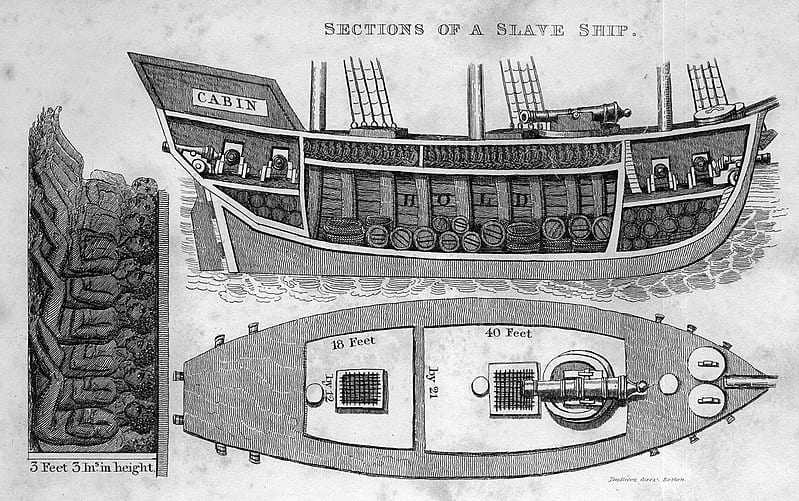






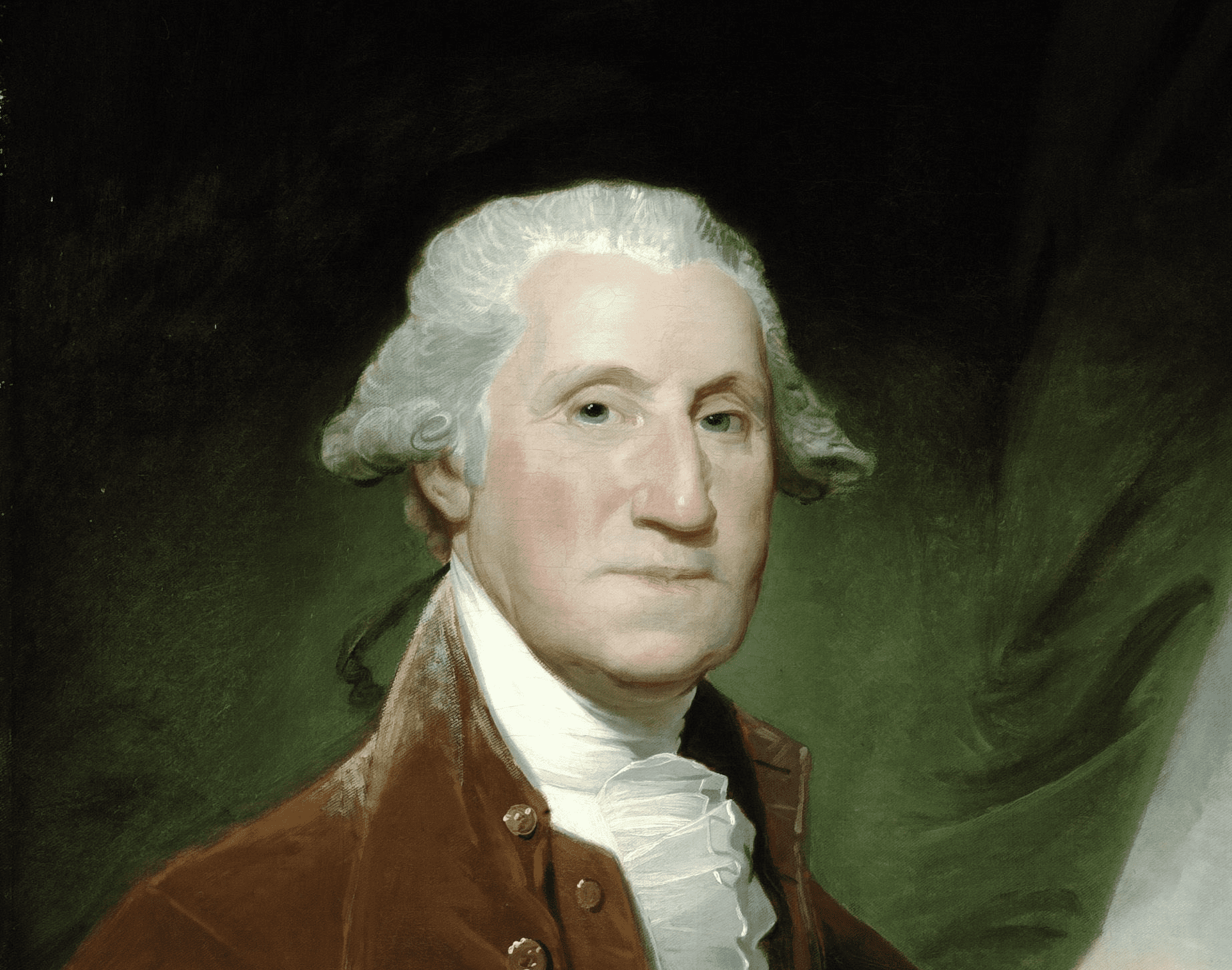















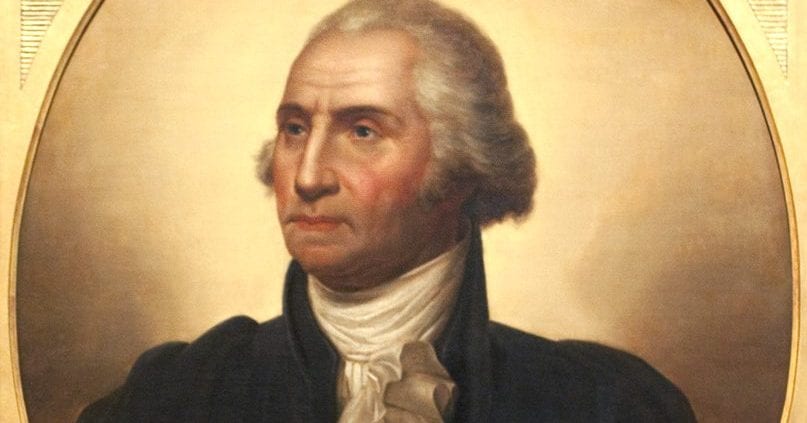
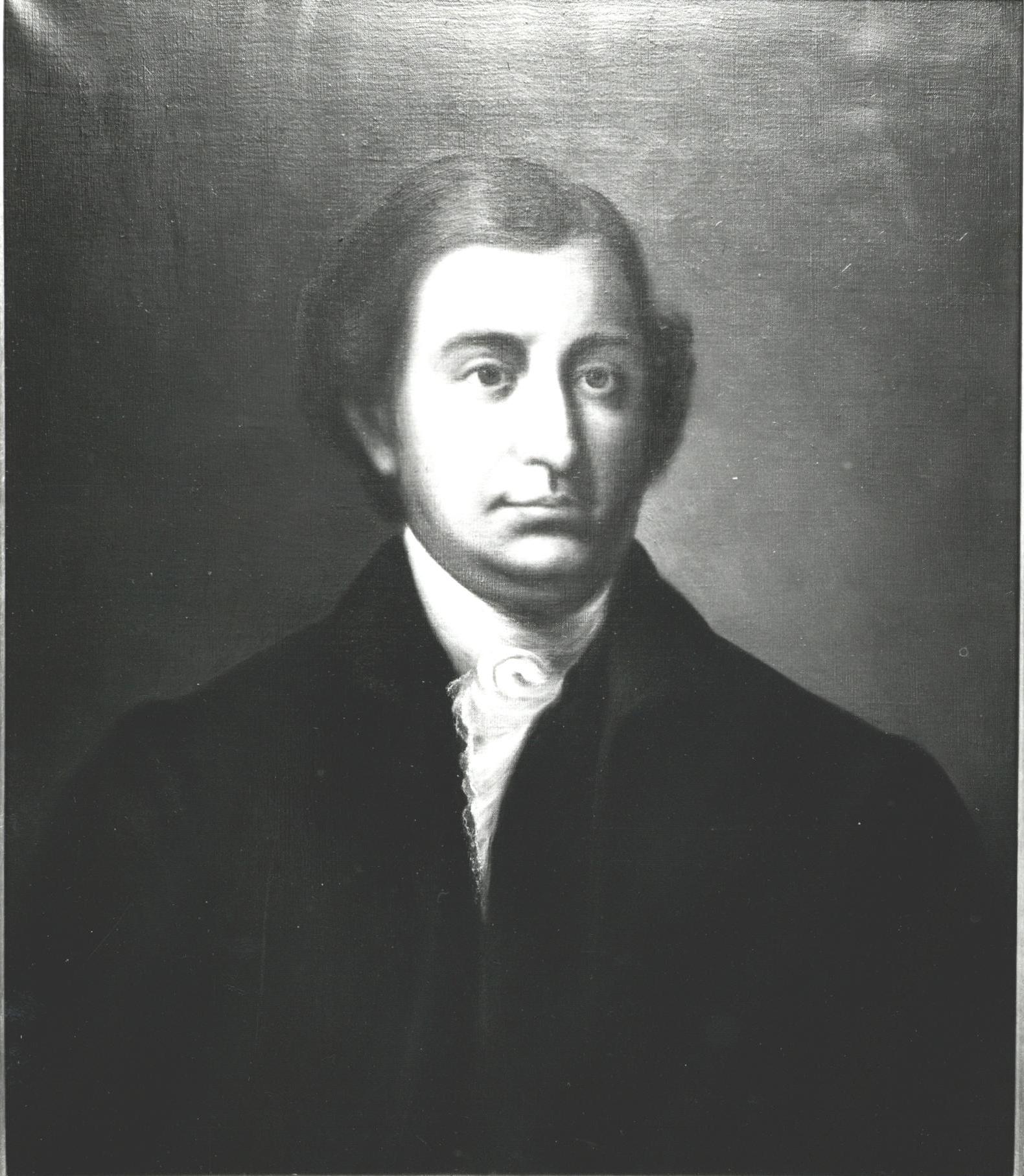
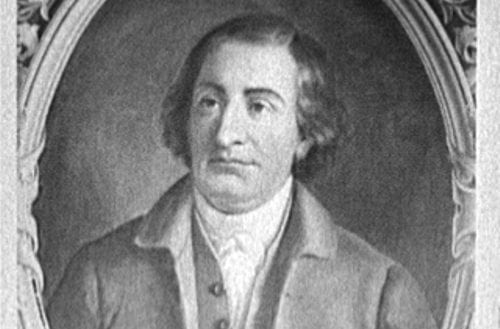
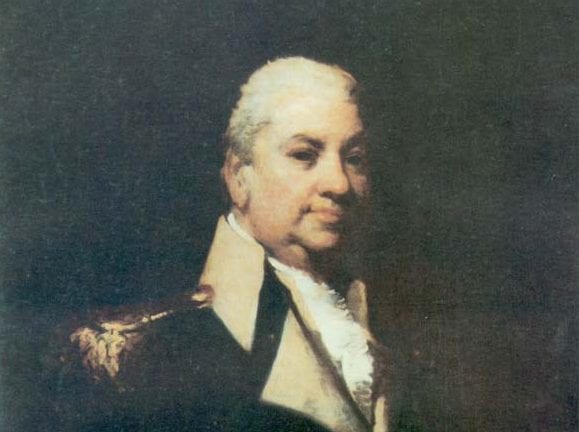




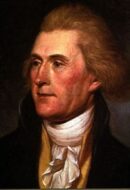













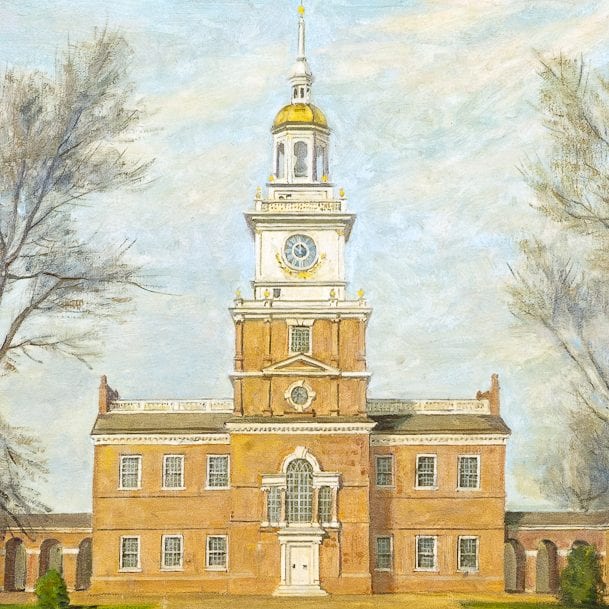

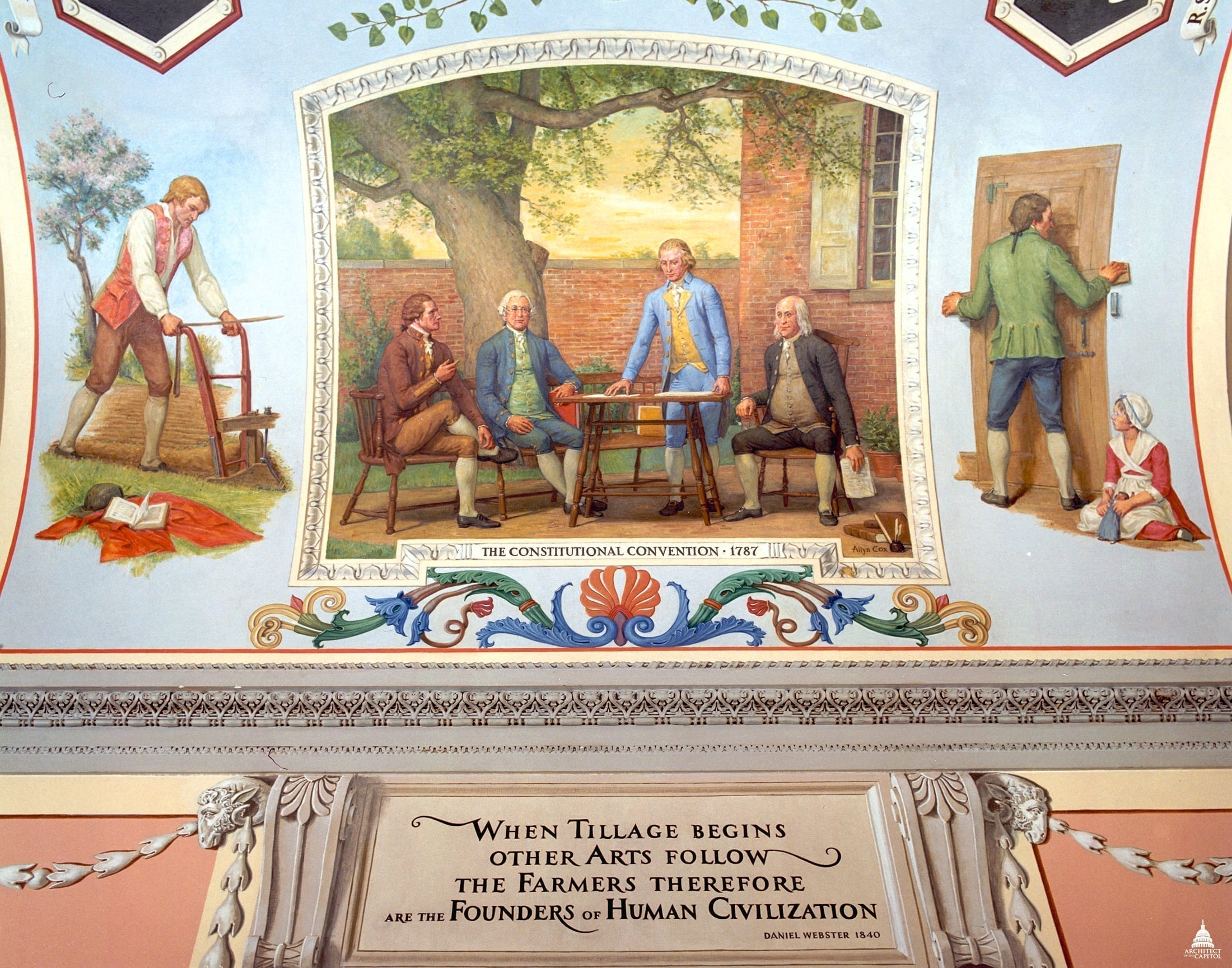

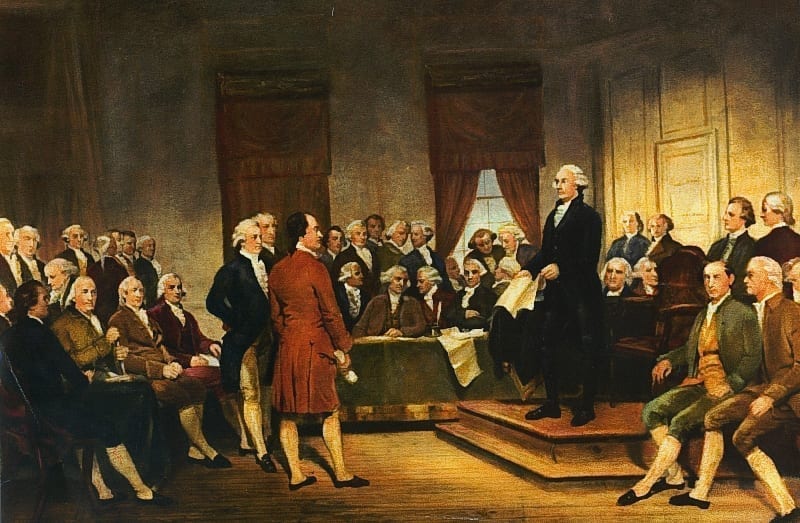


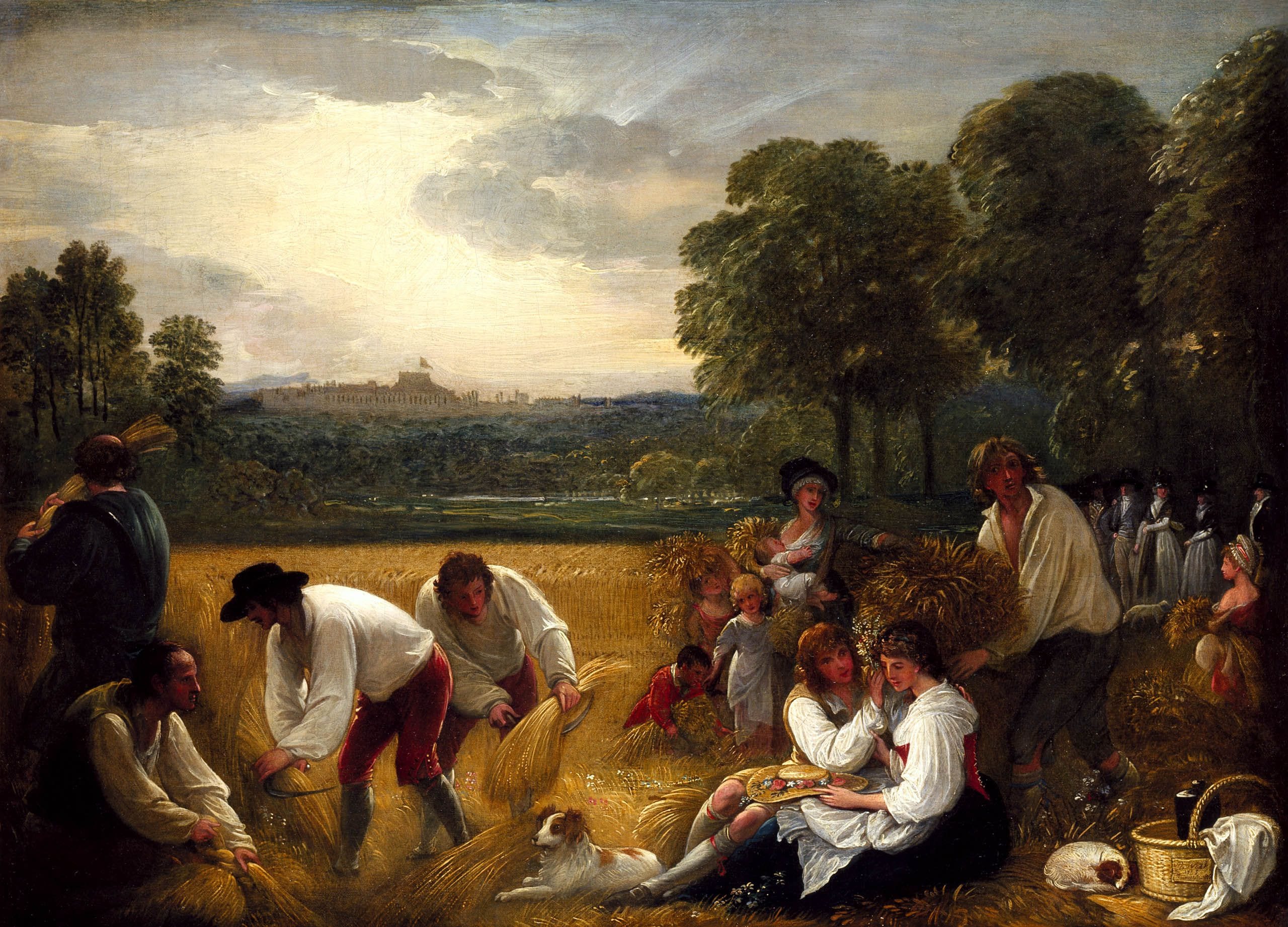
















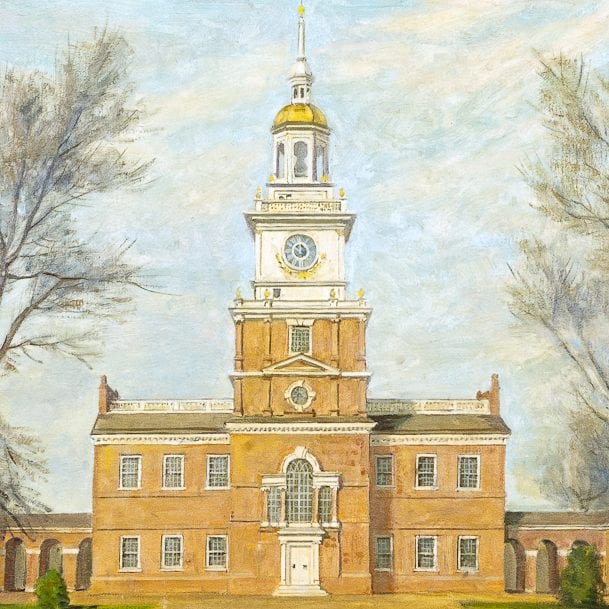
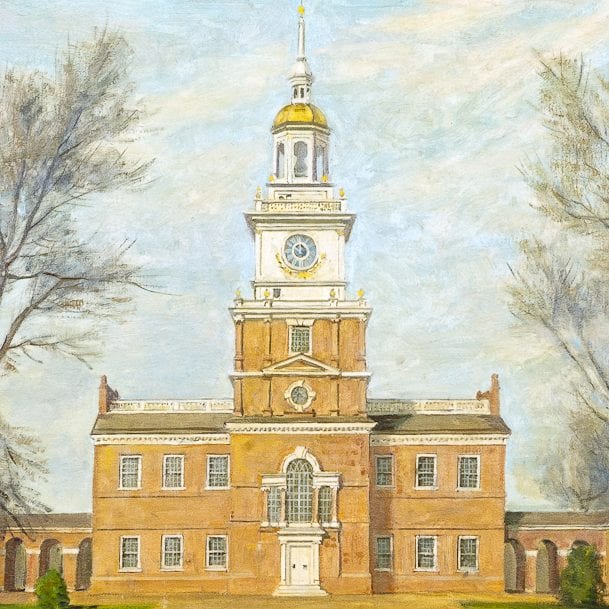






































































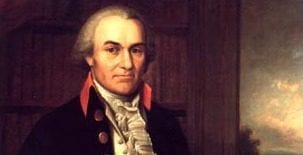



























![Finley, A. (1829) Pennsylvania. Philada. [Map] Retrieved from the Library of Congress, https://www.loc.gov/item/98688548/.](/content/uploads/2024/02/Map-of-PA--273x190.jpg)





















